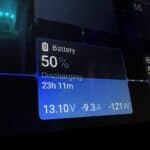
MENUMENU
TALK TO AN EXPERT
Special Hours: 7AM – 6PM PST
TALK TO AN EXPERT
Special Hours: 7AM – 6PM PST
Certain terms might seem completely foreign to you if you’re new to boating. Add to that the countless moving parts on your boat’s electrical system, and you probably find yourself with many questions. For example, what is shore power? And how do you charge your boat batteries off of it?
In this article, we take a deep dive into everything you need to know about shore power, including its benefits and whether you even need it at all. Let’s dive in!
Shore power refers to the electrical plug-ins located at boat slips to provide boaters with a reliable source of electricity. Some larger boats and yachts have a “house” electrical system they can use when plugged into shore power. Other smaller boats might just have a few electrical devices that require charging.
→ Need a refresher on boat electrical systems? Read our Marine Electrical Systems Basics Guide.
Regardless, you’ll need to ensure that the amperage of your electrical system matches the amps from the shore power outlet. If not, it’s important to use the right adapters.
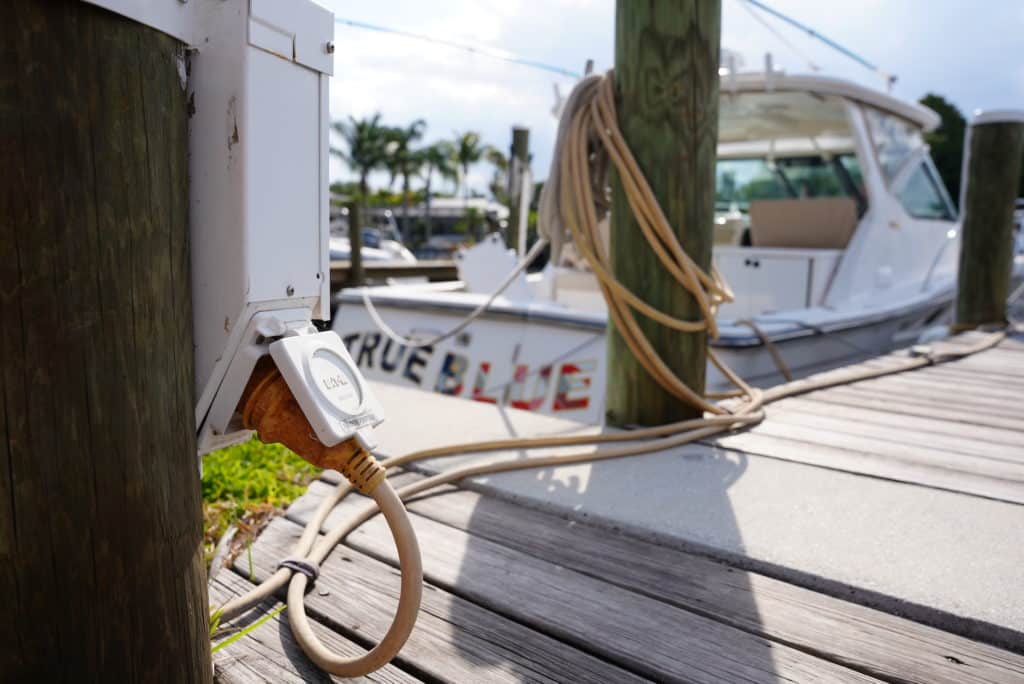
Shore power comes from the electrical grid, which means that it’s AC (alternating current) power. This differs from DC (direct current) power, which is the type of electricity stored in batteries.
Unlike DC power, AC power is easily changed to high voltages and can travel long distances, which is why it’s used for the greater electrical grid. However, DC power is typically more efficient when used over short distances and is the only kind of power used by electronics. Unlike AC power, you can store DC power in batteries.
Because shore power is the same type of electricity used throughout the power grid, having access to it is convenient for several reasons. Let’s look at how you can use shore power on your boat.
Most appliances and electrical devices run off AC power. This includes TVs, microwaves, residential refrigerators, hair dryers, etc. However, when you’re relying on the DC power from your batteries, you’ll need an inverter to convert the DC power to AC power and therefore be able to use your standard electrical outlets. Inverters can be expensive. Altering the electrical current can result in power loss.
On top of that, the size of your inverter will also limit you. This is why plugging into shore power can be ideal for powering your large appliances. You’ll be able to use your boat’s power system just as you would in a stationary home.
→ We recommend checking out hybrid inverters for your boat inverting needs.
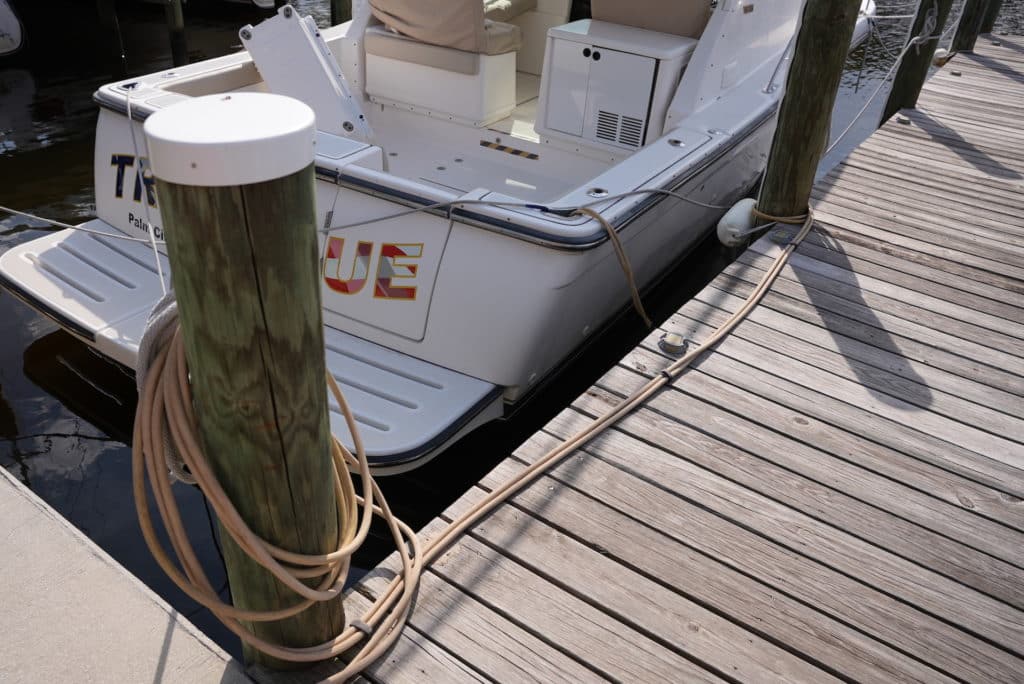
While shore power can be ideal, it’s not feasible if you want to venture away from the dock. You would need to have a very long extension cord! This is where battery power comes in. But before you leave for your next excursion, it’s important to know that you can use the shore power to charge your batteries. This is a relatively easy process that just involves having the right charge controller.
→ Charging your batteries away from the dock is possible with Solar Battery Chargers for Boats.
In a boat that has a house power system, a battery charger is almost always included from the factory. This could be a standard converter charger or even an inverter charger that combines inverter and charger functionality. These chargers can always be upgraded if needed and function best when matched to the appropriate battery type.
Smaller boats that do not have a house electrical system and shore power connections usually do not come with a shore power charger built in. These are easy to add, however, and the boat can be connected via a standard extension cord. Some chargers like the Progressive Dynamics are designed to be built in and will require wiring in an outlet, but others like the Victron Blue Smart devices include a plug that just needs an extension cord.
There are two major types of marine batteries: lead-acid and lithium batteries. Lead-acid batteries have been around for decades. Until recently, they’ve been the go-to for boaters.
Now, lithium batteries are gaining more traction because of their shorter charge times, lower weights, deeper discharges, and longer lifespans. Lithium batteries provide nearly 100% of their charge capacity (versus lead-acid’s 50%). They’re also 55% lighter and can charge in as little as three hours.
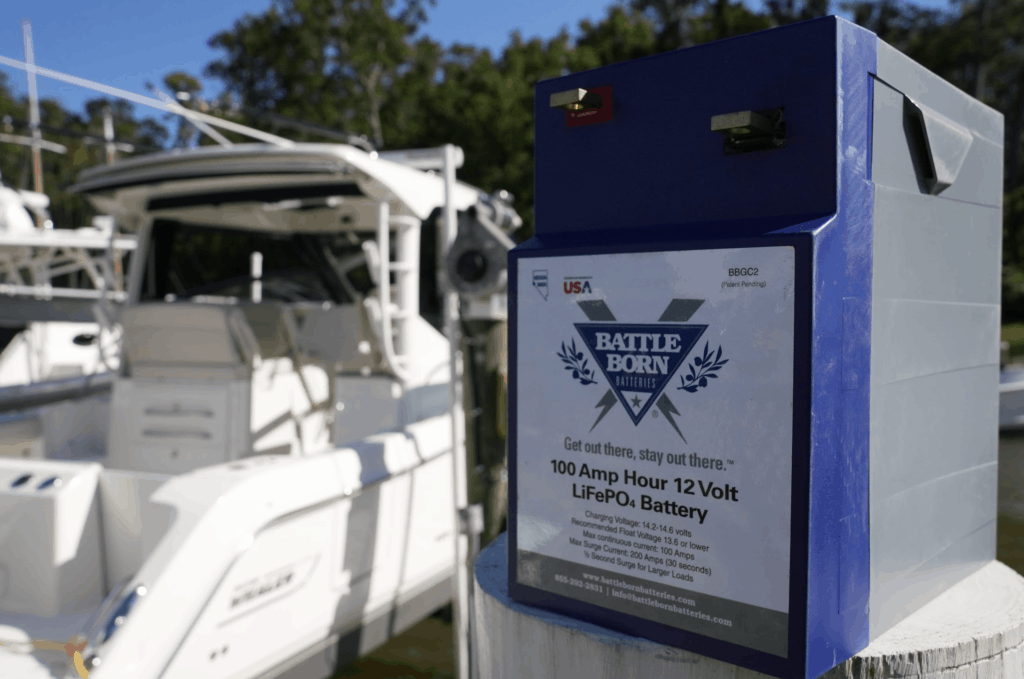
There are a few important points to know when it comes to charging lead-acid batteries with shore power. Number one, it can take up to 10 hours to charge lead-acid batteries and they need to get fully charged to avoid damage. This means that you’ll have to factor in enough charging time at the boat slip if you want to leave with fully charged batteries.
Moreover, you’ll need to consider any regular maintenance to keep your batteries in tip-top shape. For example, flooded lead-acid batteries need “watering” every two to four weeks because they lose water during the charge cycle. Therefore, you’ll need to keep enough distilled water on hand, especially while you’re off-shore.
Both lead-acid and lithium batteries require appropriate charge controllers, which control the voltage going to the batteries and allow them to charge efficiently. However, charging your lithium batteries at the boat slip will take significantly less time and will not suffer any damage if they are not fully charged. These batteries let you stay away from shore longer since they have a much greater depth of discharge.
Moreover, not only will the lithium batteries weigh less than the lead-acid batteries, but you also won’t have to do any maintenance on them. To put it plainly, lithium batteries provide the advantage of having true peace of mind without having to think about them when you’re out on the water.
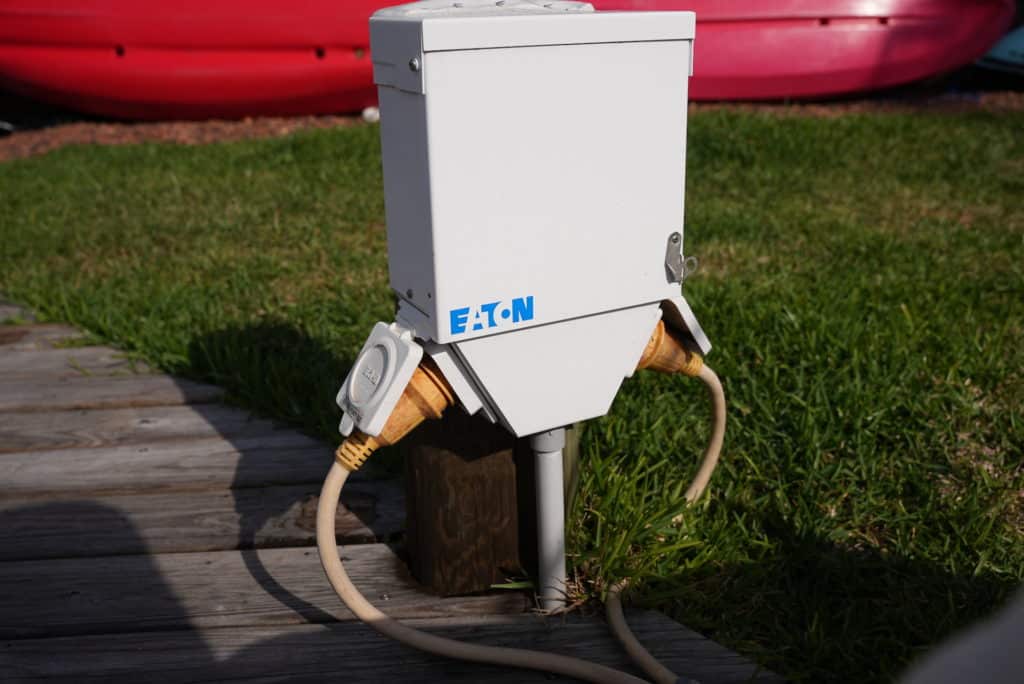
No, as long as you have the right equipment. With the right batteries, charge controller, inverter, and power source, you could potentially power your boat’s entire electrical system with off-grid power.
This could look like having enough solar panels on your boat to keep your batteries topped off, keeping a generator handy for backup, or even utilizing a small wind turbine for some extra power. Engine alternators can also act as chargers, and if your underway a lot, they may stay topped off.
With all the conveniences of shore power, it’s easy to overlook the potential hazards that come with plugging your boat into any old outlet. Because of this, it’s important to take a few precautions before connecting your boat to the next slip you pull into.
First, begin your inspection by closely looking over the shore power cord and dock pedestal outlet. Is it made of proper marine-grade components and appropriate wiring? Are the wires chaffed, cracked, or repaired with electrical tape? If so, you might want to think twice before plugging into that outlet.
You may also want to invest in a smart plug, which works by warning you of any shorts, reverse polarity, or wiring defects before you plug your boat in. These include the SmartPlug and the West Marine GalvanAlert.
→ A boat transformer is one piece of safety equipment you should have for charging your boat on shore power.
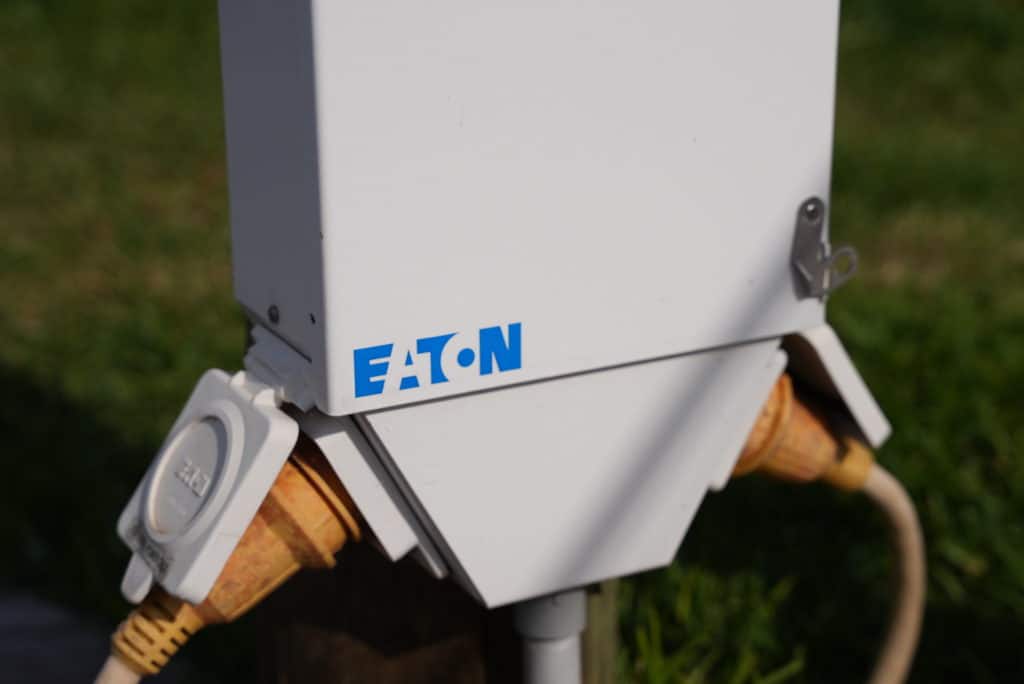
Charging your battery with shore power is safe as long as you take certain precautions. Always inspect the outlet and dock pedestal for damage first. Consider investing in a smart plug to detect any issues you can’t see with the naked eye. With these precautions, shore power can be a great way to use the full potential of your boat’s electrical system and charge your batteries in the meantime.
Do you have any questions about charging your boat battery via shore power? Leave them in the comments below!
We know that building or upgrading an electrical system can be overwhelming, so we’re here to help. Our Reno, Nevada-based sales and customer service team is standing by at (855) 292-2831 to take your questions!
Also, join us on Facebook, Instagram, and YouTube to learn more about how lithium battery systems can power your lifestyle, see how others have built their systems, and gain the confidence to get out there and stay out there.
Shop Best Sellers








Ask a technical specialist now at 855.292.2831
Stay in the Know